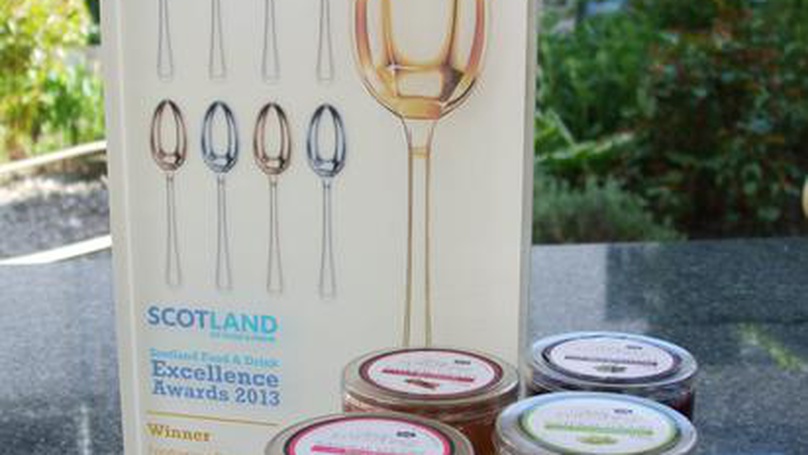Knockraich Farm has been owned by the Rodger family since the 1950s and perfectly illustrates what can be achieved by diversification.
Today the 80-acre farm at Fintry in Stirlingshire, which won the Silver Award for Family Farming Business of the Year 2015 in the British Farming Awards, is home to 60 Friesians, which for the past six months have been milked robotically.
The dairy cows and young stock are managed by Robert Rodger, but the wider diversified business - which includes the Courtyard Cafe, a soft furnishing showroom, a wedding venue and a milk processing dairy - is very much a family affair.
Keeping the cows in the fields and maintaining the farm for future generations is the biggest inspiration for us as dairy farmers.
"Unfortunately, falling milk prices had meant that our small dairy herd was under threat. We've therefore created a range of diversified ventures to increase the overall functionality and profitability of the farm. As part of this, our range of value-added dairy products is made exclusively from our own cows' milk for which the farm is paid higher than the market value." says Robert.
Nine years ago, Robert's wife Katy opened a farm shop and cafe in a converted calf barn. She also runs a soft furnishings business from the farm; the two businesses working hand in hand to attract paying customers through the farm gate. The cafe is now managed by Catherine, one of the couple's two daughters, with her sister Helena overseeing all the farm's non-agricultural ventures. Their brother, Ian, a local farm vet, is also involved in the diversified business, having planted an apple orchard five years ago to make better use of a two-acre plot which is also used as the cafe's kitchen garden.
A year after making their first batch of premium Scottish yogurt, the Katy Rodgers brand won its first accolade at the Scotland Food and Drink Excellence Awards.
"We have since won a number of other awards, but it was that first breakthrough that made the real difference," said Katy.
Until then our brand was relatively unknown, but overnight the phone started ringing with enquiries from some major supermarkets who wanted to stock our produce.
The business has gone from strength to strength, extending its retail network and supplying leading hotels and Michelin-starred restaurants. Despite the brand's success, the family's foray into food production has not cost the earth. They started on a very small scale using an assortment of second-hand equipment which was operated on a shift basis, and also worked closely with their lender to make sure investment funds were available at the right times as the business developed. Most of the Rodgers' funding for the new enterprises came from the Agricultural Mortgage Corporation (AMC), from the new calf shed - built to make way for the coffee shop - to the processing dairy and the robotic milker.
Where farmers are planning significant changes to their business, lenders will usually be looking for a sound business plan that demonstrates their ability to service the debt.
Operations like the Rodgers', which combine a number of different enterprises, can find themselves subject to a variety of different lending policies because of how the activities are categorised. This is made even more complex if different parts of the business secure borrowing from different lenders, and it is why we at CKD Galbraith now work with diversified businesses as a whole, combining varying enterprises such as in-hand and let farming, commercial and residential property, processing, renewable energy, tourism, forestry and sporting activities.
Where the loan application has the potential to be split across agricultural, residential, commercial and so on, it's useful to work with a lender that can treat the entire business as one. This means there is oversight of the business as a whole and this can be used to increase flexibility.
CKD Galbraith offers agricultural and rural business loans through the Agricultural Mortgage Corporation and has the most comprehensive network of AMC agents in the country.
